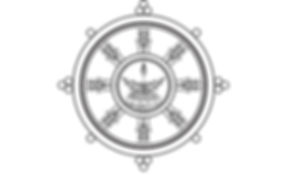
Termo
Tibetano:
ཕུང་པོ་ལྔ
phung po lnga
Atenção: provisório – em revisão
Sânscrito:
पञ्चस्कन्ध
pañcaskandha
Português:
cinco agregados
Os cinco componentes psicofísicos que permitem a análise de uma pessoa e que juntos produzem a ilusão de um eu singular, permanente e existente. Eles são forma, sensação, perceção, fatores condicionantes e consciência.
Inglês:
five aggregates
The five psychophysical components into which a person can be analyzed and which together produce the illusion of a self. They are form, feeling, perception, conditioning factors, and consciousness. [TLWF, 2011] [NLF, 2005] [GWPT, 2004] [ZT, 2006][NS]
Body, feeling, perception, conditioning factors, and consciousness. These are the constituting elements of the "personality." When they occur together, there arises the false ·impression of a self existing separately as an independent entity. [LLB, 2002]
The five constituents, one physical and four mental, found when, in the search for the self, the
human “person” is subjected to analytical investigation. They are the material form or body, feelings, perceptions, conditioning factors, and consciousness. The coming together of these aggregates gives rise to the impression of “I.” [WL, 2012]
The five psychophysical components into which a person can be analyzed and that together produce the illusion of a self. They are form, feeling, perception, conditioning factors, and consciousness. The term is often used to denote an individual as the basis for imputing a self.[OMS, 2018]
Espanhol:
cinco agregados
Los cinco componentes psicofísicos en los que se puede analizar a una persona y que juntos producen la ilusión de un "yo". Son forma, sensación, percepción, factores condicionantes y conciencia.
Francês:
cinq agrégats / skandhas*
cinq ensembles dans lesquels le Bouddha a englobé tous les phénomènes physiques et mentaux de l’existence conditionnée. Ce sont la forme, les sensations, les perceptions, les formations mentales et la conscience. [SC, 2003]
Voir Agrégats. [TDPQ, 2009]
*CC [RL, 2010][G-T]
Italiano:
